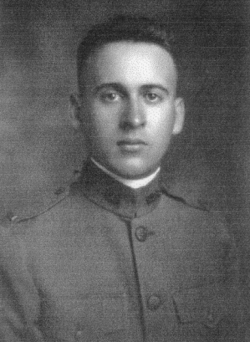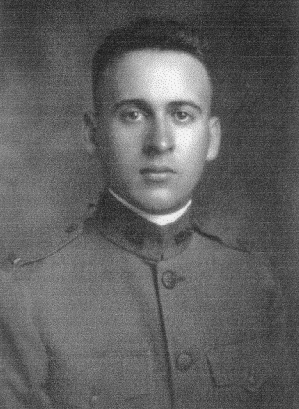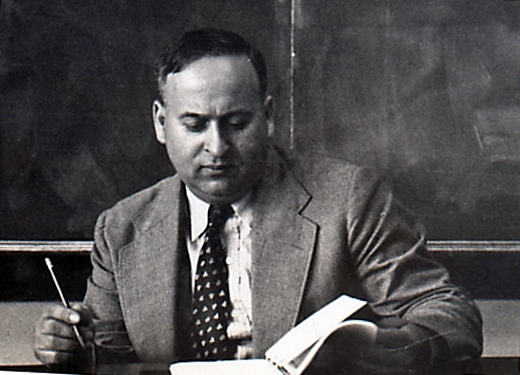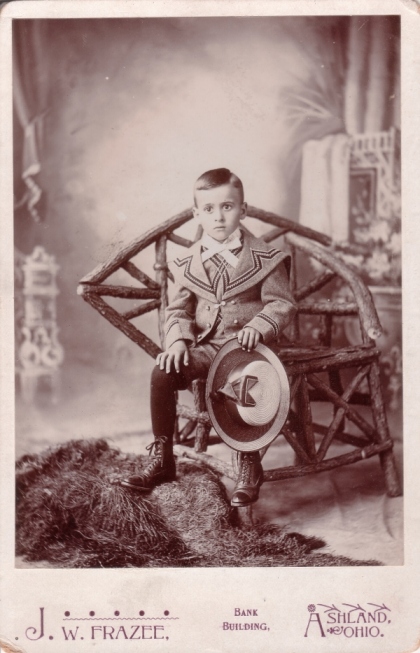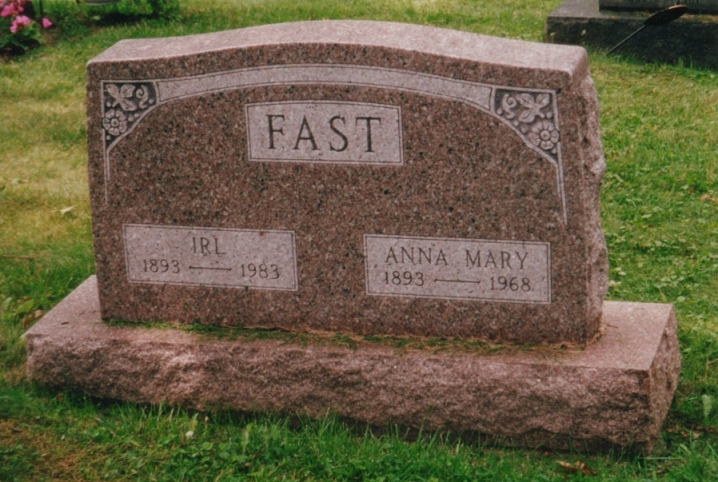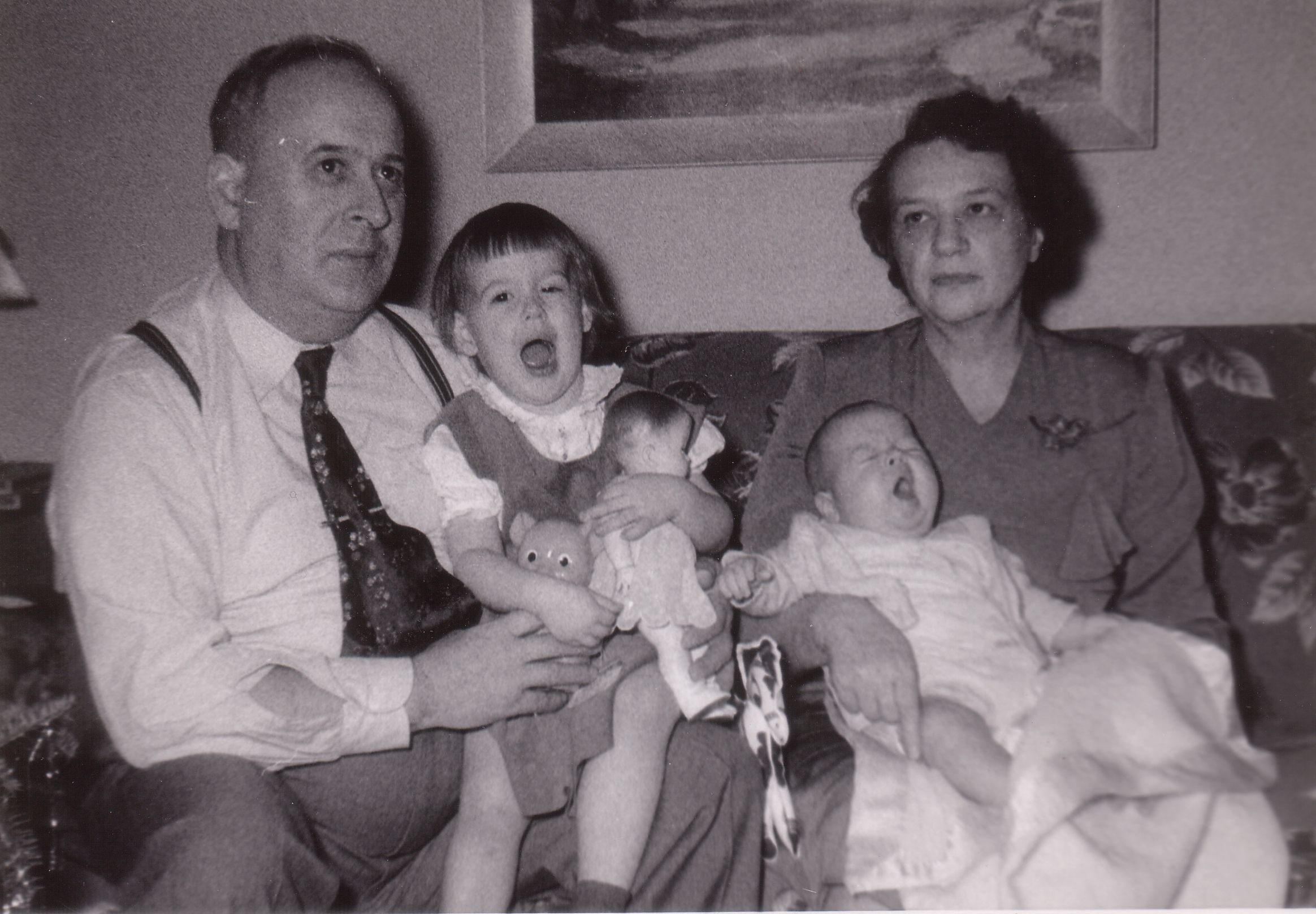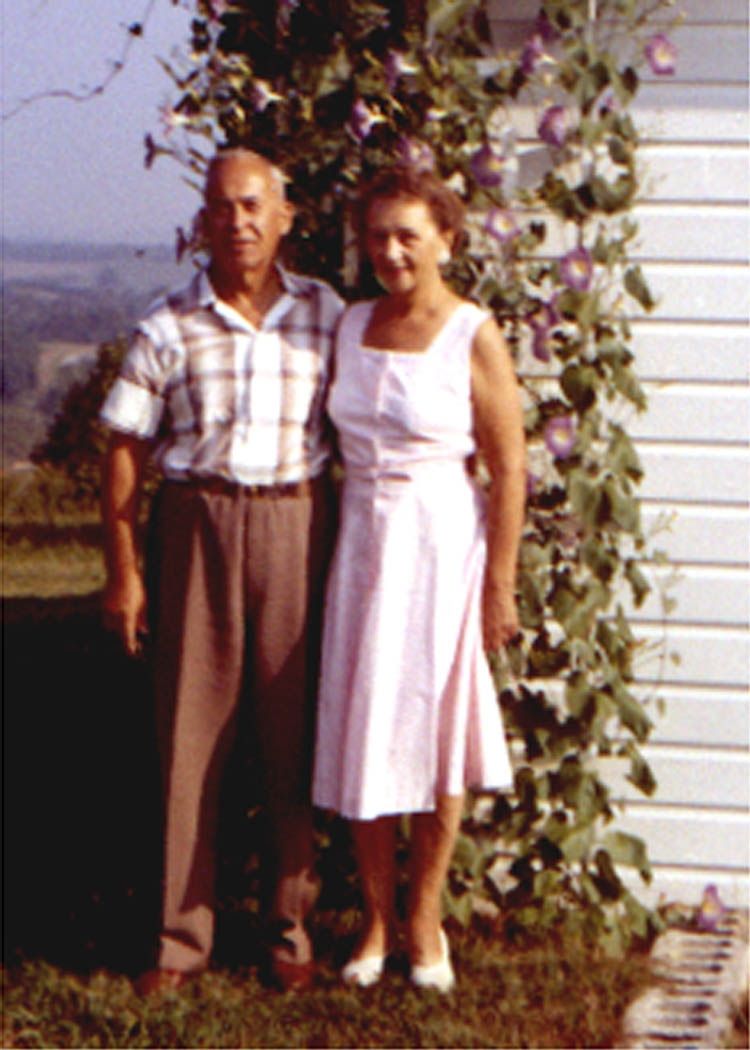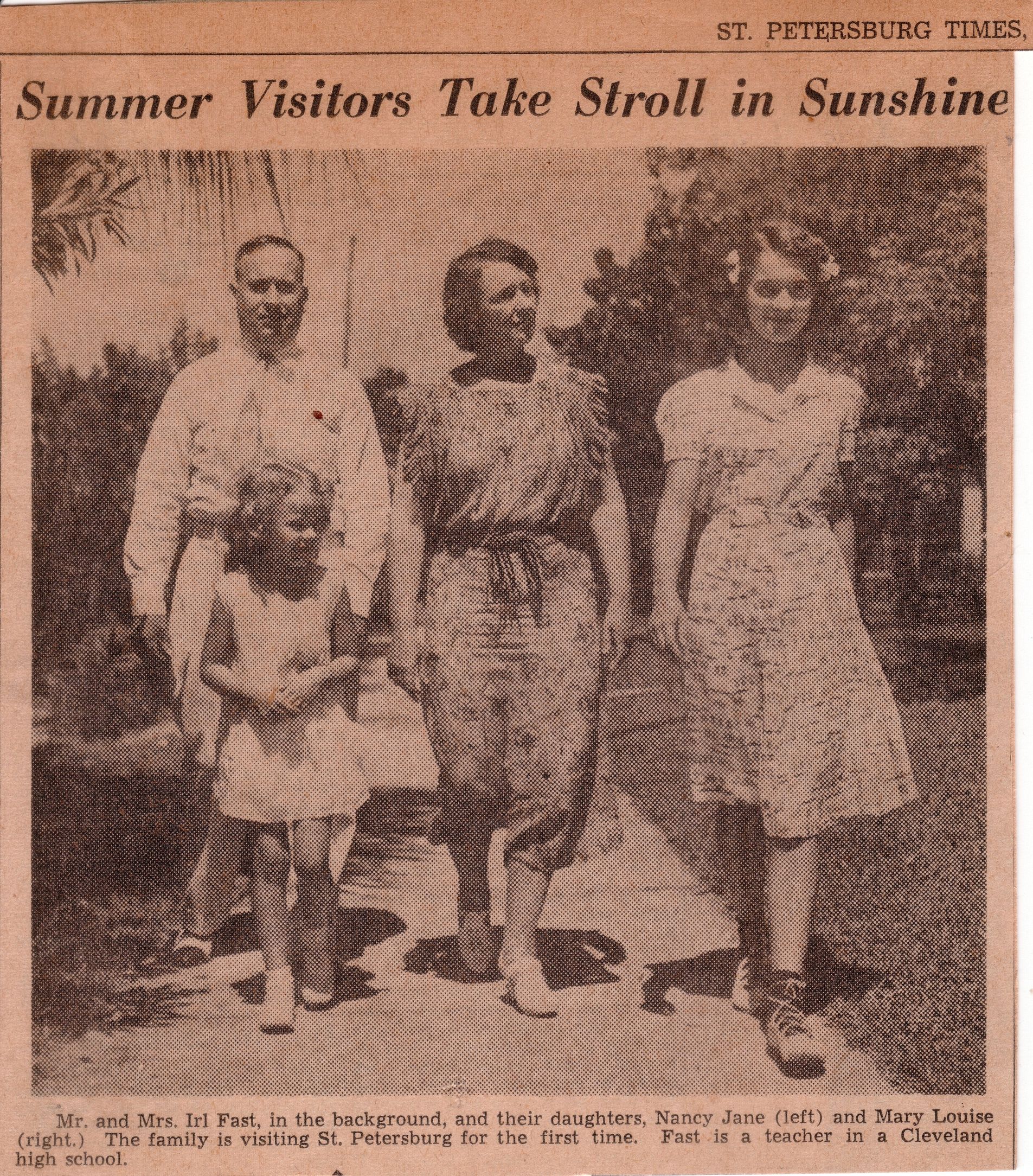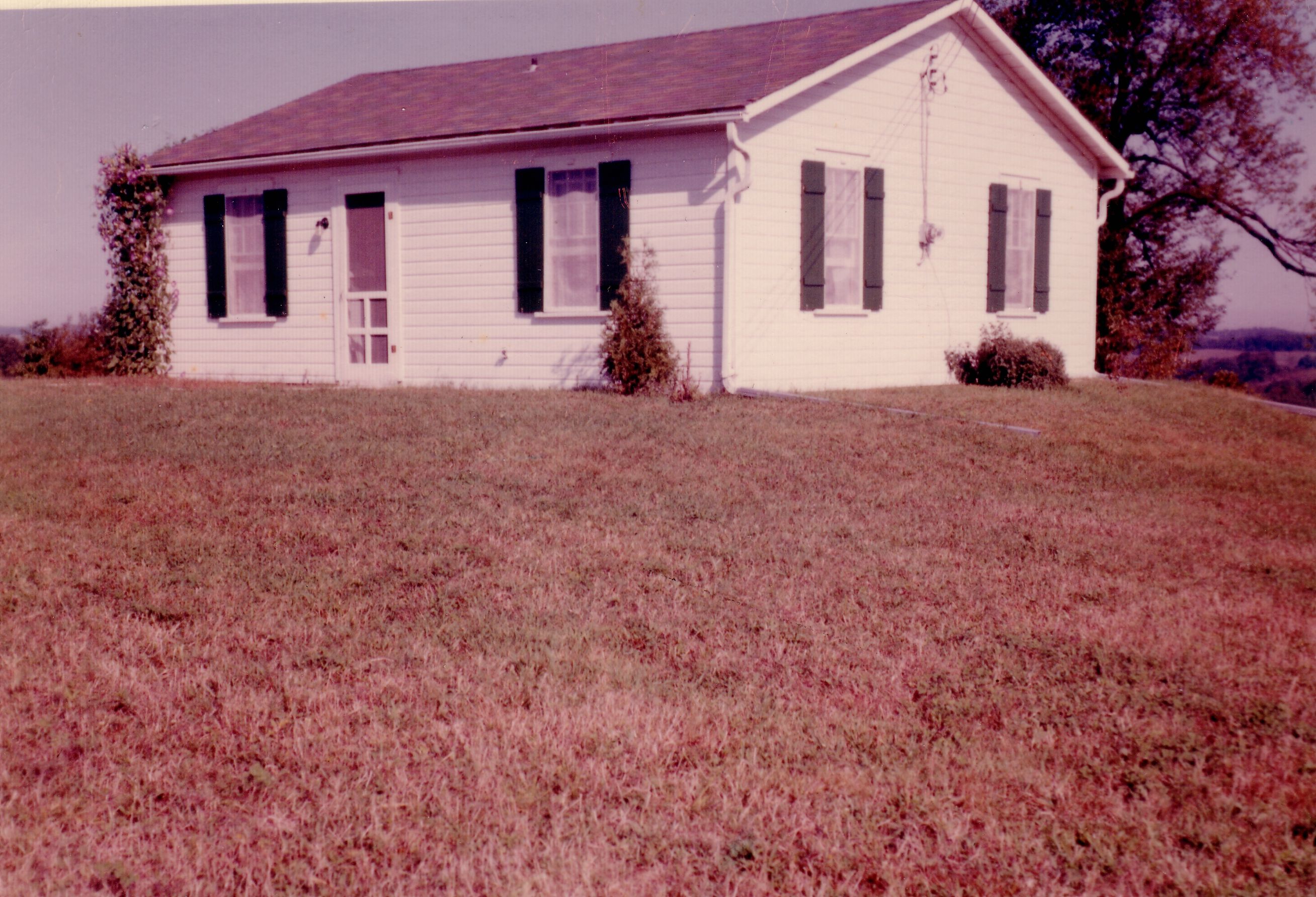DESCENDANT OF 5 MAYFLOWER PASSENGERS: MR. AND MRS. WILLIAM BREWSTER, RICHARD WARREN, FRANCIS COOKE AND JOHN COOKE
GREAT GREAT GRANDSON OF REVOLUTIONARY WAR HERO CHRISTIAN FAST
WORLD WAR I VETERAN
HEARD THE LAST SHOTS FIRED IN WORLD WAR I
AIR RAID WARDEN, WORLD WAR II
DEACON OF TRINITY CONGREGATIONAL CHURCH, 1942
PRESIDENT OF THE CLEVELAND HEIGHTS FEDERATION OF TEACHERS, 1950-1952
PRESIDENT OF AMERICAN FEDERATION OF TEACHERS OF NORTHEAST OHIO
ASSISTANT PRINCIPAL AT MANSFIELD HIGH SCHOOL
PRESIDENT, TREASURER, AND SECRETARY OF THE UNITED NATIONS ASSOCIATION (ST. PETERSBURG FLORIDA CHAPTER)
ADVOCATE FOR SOCIAL JUSTICE AND WORLD PEACE
--------------
A BIOGRAPHY OF IRL FAST, by Laurence Overmire, genealogist and family historian (grandson), Aug. 2008:
Irl Fast was born near Polk, Ohio, on Jan. 18, 1893, the only child of Elvin and Mary (Mitchelson) Fast.
At 5' 5", Irl was considered too small to take over the family farm, perhaps a disappointment for his father, but no doubt a good thing for Irl, because he had a passion for learning and education. He attended the local, rural schools in Polk, receiving the education available at the time, probably up to about the eighth grade, and then he became a teacher there when he finished. He was determined to learn more, however, to get a college education and pursue his love of teaching, but since his family couldn't afford to send him, he had to work his way through school. Initially, he attended Wooster College, but he transferred to Baldwin Wallace and graduated with a B.A. in 1917. Not long after, he was called to service by Uncle Sam, enlisting May 26, 1918 in Ashland, Ohio.
Irl was commissioned a 2nd Lt. in the 26th Infantry, 1st Regular Army Division in World War I. His division was commanded by Lt. Col. Theodore Roosevelt, son of the former President, whom Irl met. In the ship that carried his unit to France, he was stationed in the crow's nest. As he recalled in his memoirs:
"I will admit I was a little scared at first. Not so much with the height, because height had never affected me, but at the mast, which was swinging with the ladder attached to it in about a 30 degree arc, as the ship itself rolled in about the same arc."
Their convoy encountered a German sub, which they sunk. When they arrived in Brest, France, Irl's battalion proceeded to pursue the retreating Germans, following them to a city called Sedan near the French-German border. Here, the French drove the Germans out of the city.
"It was only a short time later that the Armistice was signed to go into effect at 11a.m. on Nov. 11, 1918. Early in the forenoon, I could hear the gunfire along the front line, which gradually diminished, until promptly at 11a.m. firing stopped completely. World War I with Germany was over. I had heard the last shots."
Irl was selected by the commander of his battalion to become a member of the Sorbonne detachment, a program in which American soldiers stayed with French families while furthering their education, the idea being that these relationships would foster friendships between our two countries. Irl studied French language and history. In a French textbook he read, "It is the duty of every French boy to prepare himself to take back Alsace and Lorraine for France." Irl noted, "After World War I, Germany gave them back. So it happens in history that war leads to more war." Irl made the most of his time in Paris attending operas at the Paris Opera House, visiting The Louvre, The Eiffel Tower, Napoleon's Tomb and The Cathedral of Notre Dame. On an excursion to the war-ravaged city of Rheims, he met a French soldier. As the two viewed the destruction, the soldier was particularly disturbed by the desecration done to the historic and beautiful Cathedral of Rheims, saying, "Before the steps in man's progress toward civilization, everyone must bow."
On May 30, 1919, Irl heard President Woodrow Wilson's memorial at the American cemetery at Surene, just outside of Paris. "I do not expect to pass another day like that," he wrote. "To hear an American President speak to a large body of American soldiers at the graves of American soldiers in a foreign land."
On June 30, 1919, Irl went to Versailles. He was among the crowd that watched as Lloyd George, Clemenceau and Woodrow Wilson entered the building to sign the Armistice ending World War I.
After the war, Irl furthered his education, earning a Masters degree from the University of Michigan in 1922. He also devoted some time in courting the young lady who had captured his attentions, Anna Mary Shriver. They were married in September, 1922, in the backyard of Anna Mary's aunt Tirjah Shriver.
Irl and Anna Mary enjoyed a happy married life, and were effective and loving parents according to their two daughters, Mary Lou and Nancy.
Irl had a distinguished career as a history, economics and social studies teacher. He taught first at Mt. Vernon, Ohio, then Mansfield, Ohio, and finally Cleveland Heights High School. A fellow teacher at Heights High, Walter Kremm, had fond memories of Irl:
"Irl was a kind man. When I brought my 2 1/2 year old son for a visit, Irl drew some pictures to amuse him. He could take a joke on himself, as when Jimmy Price put a bra in Irl's empty black metal lunch box. Irl could be gentle and persuasive as when he talked an elderly lady teacher into retirement. Irl possessed the keen intelligence that could provide successful exercise of his kindness."
Irl was a persuasive public speaker and highly respected as an effective leader by his colleagues. He served as President of the Teacher's Union in the 1940's, Chairman of the History Dept., President of Greater Cleveland Social Studies Association, President of the Cleveland Heights Federation of Teachers and President of the American Federation of teachers.
When World War II broke out, Irl served his country again as a local Air Raid Warden.
Politically, Irl was progressive, a Jeffersonian Democrat, who believed in the goodness of people. He was an advocate for the common man and a fierce opponent of social injustice.
Irl retired in 1957. He and Anna Mary moved to St. Petersburg, FL. After his wife's death, Irl "was railroaded into the job of chapter treasurer" for the United Nations Association, an organization for which he had previously served as President. He remarked, "I held the treasurer's job for 6 years and later found out that as a rule the job of treasurer is the most difficult to get rid of once one is in it." The purpose of the U.N.A. is to educate the public about the U.N. In 1970, Irl went to New York City to attend the National Convention. While there he did some signt-seeing:
"I took an extended bus tour taking in the places that are objects of interest to visitors, and I was able to see more by walking around the vicinity of Manhattan. As a result, my summary of my impression of N.Y. City was: the City of greatest culture and lowest degradation in the Nation."
In later years Irl moved to Denver, Colorado, and finally to Elyria, Ohio, where he died in a nursing home on Feb. 25, 1893, at the age of 90. As his friend and colleague Walter Kremm wrote after his death, "I'll never forget my friend Irl. I think his influence will live on in his family and friends and in the hundreds of students he taught at Cleveland Heights High. I think we're all a bit better for having known him. Irl lived a meaningful and valuable life."
DESCENDANT OF 5 MAYFLOWER PASSENGERS: MR. AND MRS. WILLIAM BREWSTER, RICHARD WARREN, FRANCIS COOKE AND JOHN COOKE
GREAT GREAT GRANDSON OF REVOLUTIONARY WAR HERO CHRISTIAN FAST
WORLD WAR I VETERAN
HEARD THE LAST SHOTS FIRED IN WORLD WAR I
AIR RAID WARDEN, WORLD WAR II
DEACON OF TRINITY CONGREGATIONAL CHURCH, 1942
PRESIDENT OF THE CLEVELAND HEIGHTS FEDERATION OF TEACHERS, 1950-1952
PRESIDENT OF AMERICAN FEDERATION OF TEACHERS OF NORTHEAST OHIO
ASSISTANT PRINCIPAL AT MANSFIELD HIGH SCHOOL
PRESIDENT, TREASURER, AND SECRETARY OF THE UNITED NATIONS ASSOCIATION (ST. PETERSBURG FLORIDA CHAPTER)
ADVOCATE FOR SOCIAL JUSTICE AND WORLD PEACE
--------------
A BIOGRAPHY OF IRL FAST, by Laurence Overmire, genealogist and family historian (grandson), Aug. 2008:
Irl Fast was born near Polk, Ohio, on Jan. 18, 1893, the only child of Elvin and Mary (Mitchelson) Fast.
At 5' 5", Irl was considered too small to take over the family farm, perhaps a disappointment for his father, but no doubt a good thing for Irl, because he had a passion for learning and education. He attended the local, rural schools in Polk, receiving the education available at the time, probably up to about the eighth grade, and then he became a teacher there when he finished. He was determined to learn more, however, to get a college education and pursue his love of teaching, but since his family couldn't afford to send him, he had to work his way through school. Initially, he attended Wooster College, but he transferred to Baldwin Wallace and graduated with a B.A. in 1917. Not long after, he was called to service by Uncle Sam, enlisting May 26, 1918 in Ashland, Ohio.
Irl was commissioned a 2nd Lt. in the 26th Infantry, 1st Regular Army Division in World War I. His division was commanded by Lt. Col. Theodore Roosevelt, son of the former President, whom Irl met. In the ship that carried his unit to France, he was stationed in the crow's nest. As he recalled in his memoirs:
"I will admit I was a little scared at first. Not so much with the height, because height had never affected me, but at the mast, which was swinging with the ladder attached to it in about a 30 degree arc, as the ship itself rolled in about the same arc."
Their convoy encountered a German sub, which they sunk. When they arrived in Brest, France, Irl's battalion proceeded to pursue the retreating Germans, following them to a city called Sedan near the French-German border. Here, the French drove the Germans out of the city.
"It was only a short time later that the Armistice was signed to go into effect at 11a.m. on Nov. 11, 1918. Early in the forenoon, I could hear the gunfire along the front line, which gradually diminished, until promptly at 11a.m. firing stopped completely. World War I with Germany was over. I had heard the last shots."
Irl was selected by the commander of his battalion to become a member of the Sorbonne detachment, a program in which American soldiers stayed with French families while furthering their education, the idea being that these relationships would foster friendships between our two countries. Irl studied French language and history. In a French textbook he read, "It is the duty of every French boy to prepare himself to take back Alsace and Lorraine for France." Irl noted, "After World War I, Germany gave them back. So it happens in history that war leads to more war." Irl made the most of his time in Paris attending operas at the Paris Opera House, visiting The Louvre, The Eiffel Tower, Napoleon's Tomb and The Cathedral of Notre Dame. On an excursion to the war-ravaged city of Rheims, he met a French soldier. As the two viewed the destruction, the soldier was particularly disturbed by the desecration done to the historic and beautiful Cathedral of Rheims, saying, "Before the steps in man's progress toward civilization, everyone must bow."
On May 30, 1919, Irl heard President Woodrow Wilson's memorial at the American cemetery at Surene, just outside of Paris. "I do not expect to pass another day like that," he wrote. "To hear an American President speak to a large body of American soldiers at the graves of American soldiers in a foreign land."
On June 30, 1919, Irl went to Versailles. He was among the crowd that watched as Lloyd George, Clemenceau and Woodrow Wilson entered the building to sign the Armistice ending World War I.
After the war, Irl furthered his education, earning a Masters degree from the University of Michigan in 1922. He also devoted some time in courting the young lady who had captured his attentions, Anna Mary Shriver. They were married in September, 1922, in the backyard of Anna Mary's aunt Tirjah Shriver.
Irl and Anna Mary enjoyed a happy married life, and were effective and loving parents according to their two daughters, Mary Lou and Nancy.
Irl had a distinguished career as a history, economics and social studies teacher. He taught first at Mt. Vernon, Ohio, then Mansfield, Ohio, and finally Cleveland Heights High School. A fellow teacher at Heights High, Walter Kremm, had fond memories of Irl:
"Irl was a kind man. When I brought my 2 1/2 year old son for a visit, Irl drew some pictures to amuse him. He could take a joke on himself, as when Jimmy Price put a bra in Irl's empty black metal lunch box. Irl could be gentle and persuasive as when he talked an elderly lady teacher into retirement. Irl possessed the keen intelligence that could provide successful exercise of his kindness."
Irl was a persuasive public speaker and highly respected as an effective leader by his colleagues. He served as President of the Teacher's Union in the 1940's, Chairman of the History Dept., President of Greater Cleveland Social Studies Association, President of the Cleveland Heights Federation of Teachers and President of the American Federation of teachers.
When World War II broke out, Irl served his country again as a local Air Raid Warden.
Politically, Irl was progressive, a Jeffersonian Democrat, who believed in the goodness of people. He was an advocate for the common man and a fierce opponent of social injustice.
Irl retired in 1957. He and Anna Mary moved to St. Petersburg, FL. After his wife's death, Irl "was railroaded into the job of chapter treasurer" for the United Nations Association, an organization for which he had previously served as President. He remarked, "I held the treasurer's job for 6 years and later found out that as a rule the job of treasurer is the most difficult to get rid of once one is in it." The purpose of the U.N.A. is to educate the public about the U.N. In 1970, Irl went to New York City to attend the National Convention. While there he did some signt-seeing:
"I took an extended bus tour taking in the places that are objects of interest to visitors, and I was able to see more by walking around the vicinity of Manhattan. As a result, my summary of my impression of N.Y. City was: the City of greatest culture and lowest degradation in the Nation."
In later years Irl moved to Denver, Colorado, and finally to Elyria, Ohio, where he died in a nursing home on Feb. 25, 1893, at the age of 90. As his friend and colleague Walter Kremm wrote after his death, "I'll never forget my friend Irl. I think his influence will live on in his family and friends and in the hundreds of students he taught at Cleveland Heights High. I think we're all a bit better for having known him. Irl lived a meaningful and valuable life."
